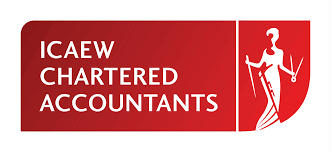‘Big Four’ fines being used by ICAEW to protect audit giants from reforms

The Institute of Chartered Accountants in England and Wales (ICAEW), which is opposing a major shake-up of the operations of the so-called ‘Big Four’ accountancy firms, has been the recipient of more than £50 million in fines levied on those firms as a result of their botched audits, it has emerged.
The fines help fund the ICAEW’s work, including its opposition to some proposals made by the Competition and Markets Authority to reform the practises of KPMG, EY, PwC and Deloitte with the purpose of improving the quality of their audit work.
Just yesterday, the ICAEW welcomed another £5 million after KPMG was fined and “severely reprimanded” for failing to identify a massive black hole in the books of the Co-op Bank which subsequently nearly destroyed the lender.
Such fines are levied by industry regulator the Financial Reporting Council, and while fines raised from audit investigations which begin after 2016 go to HM Revenue and Customs, investigations started before 2016, result in any fines being paid to the ICAEW.
The ICAEW is responsible for licensing chartered accountants and overseeing the profession.
It is led by accountants – and its vice-president is KPMG partner David Matthews.
The ICAEW receives money from finesy because it has a role in funding tribunal work in the run-up to a penalty being announced.
In 2012 it got £100,000. This rose to £1.3 million in 2013, and to £10.5 million in 2016.
The organisation’s accounts show that it has now been given more than £50 million in penalty payments since 2012 and last year picked up £16.3 million from FRC fines and recovered costs – 13pc of its income.
However, it is on record as opposing key elements of industry reforms published by the CMA last month intended to combat the behaviour and negligence that has led to these fines.
Following what critics said was the result of the CMA already bowing to industry pressure, the regulator’s proposals stopped short of calling for the Big Four to be broken up, and instead called for auditing and consultancy services to be kept separate in a move known as ‘operational separation’.
This will mean audit chiefs at do not get a share of profits from consulting and must answer to their own distinct board.
Defending the tempered approach to reform in the face of such calamities as the Coop Bank, Tesco and Carillion, the regulator said forcing the Big Four to split into completely separate consulting and audit companies would be overly-complicated.
The CMA said: “Given the difficulties with an immediate global structural split, the CMA is recommending an operational split.”
Its three main recommendations are:
- A split between audit and advisory businesses, with separate management and accounts
- A mandatory “joint audit” system, with a Big Four and a non-Big Four firm working together on an audit
- Regulation of those appointing auditors
However, even these have been opposed by the Big Four firms, and Deloitte, EY, PwC and KPMG are expected to challenge them in the courts, according to reports.
And reacting to the CMA proposals, ICAEW chief executive Michael Izza said: “Some of the measures could prove counter-productive, pushing up costs for businesses and consumers while doing little to improve quality or increase choice.”
Critics of the process of funnelling fines into the coffers of the ICAEW said the current rules are farcical, and mean the chief cheerleader for big auditors is using cash raised with the intention to of punishing them is instead being re-purposed to campaign on their behalf.
Professor Prem Sikka, of the University of Sheffield, told the Daily Mail newspaper: “The KPMG fine is another windfall for the ICAeW.
“They use that money to reduce the fees that firms pay, and they are campaigning against even the modest reforms that have been proposed.
“So KPMG know that all this is doing is giving money to a campaign designed to protect them and the rest of the Big Four. The whole situation is a farce. And it just shows how incompetent the accounting industry is.”
The ICAEW said that it has contributed £60 million to FRC investigations in the past 20 years.
An ICAEW spokesperson said: “Until June 2016, ICAEW and other professional bodies were required under the Companies Act to outsource the investigation of all public interest complaints to the Financial Reporting Council (FRC) and to pay all costs incurred by the FRC in the investigation of those complaints. Over the last 20 years, we have paid over £60m in costs to fund such actions. Where a case results in a financial sanction, the fine will revert to ICAEW. However, if a case does not result in a financial sanction, ICAEW will not recover the costs it has funded for the investigation.
“All audit complaints which have been brought by the FRC since June 2016 have been brought under a new process called the Audit Enforcement Procedure. ICAEW will only receive the costs ordered to be paid by the firms, not the sanction, and this may amount to less than the costs ICAEW has paid to fund the investigation.
“As a professional membership body with a Royal Charter to act in the public interest, we use the money from recovered fines to fund activities and projects that are in the public interest and that will have the right impact. An example is the provision of Bloomsbury professional content for ICAEW firms to ensure they can provide fully compliant and up-to-date client advice. We also recently provided an unconditional financial contribution to Sir Donald Brydon’s review of the quality and effectiveness of audit. This work will help rebuild confidence in the audit market and ensure it meets the expectations of investors and wider society.”



